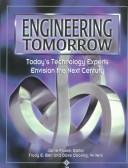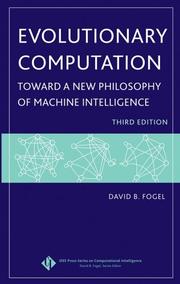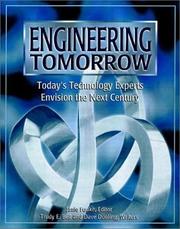| Listing 1 - 5 of 5 |
Sort by
|
Multi
ISBN: 9783030542184 9783030542191 9783030542207 9783030542177 Year: 2021 Publisher: Cham Springer International Publishing
Abstract | Keywords | Export | Availability | Bookmark
 Loading...
Loading...Choose an application
- Reference Manager
- EndNote
- RefWorks (Direct export to RefWorks)
The 1846 discovery of Neptune is one of the most remarkable stories in the history of science and astronomy. John Couch Adams and U.J. Le Verrier both investigated anomalies in the motion of Uranus and independently predicted the existence and location of this new planet. However, interpretations of the events surrounding this discovery have long been mired in controversy. Who first predicted the new planet? Was the discovery just a lucky fluke? The ensuing storm engaged astronomers across Europe and the United States. Written by an international group of authors, this pathbreaking volume explores in unprecedented depth the contentious history of Neptune's discovery, drawing on newly discovered documents and re-examining the historical record. In so doing, we gain new understanding of the actions of key individuals and sharper insights into the pressures acting on them. The discovery of Neptune was a captivating mathematical moment and was widely regarded at the time as the greatest triumph of Newton's theory of universal gravitation. The book therefore begins with Newton's development of his ideas of gravity. It examines too the mathematical calculations related to the discovery of Neptune, using new theories and tools provided by advances in celestial mechanics over the past twenty years. Through this process, the book analyzes why the mathematical approach that proved so potent in the discovery of Neptune, grand as it was, could not help produce similar discoveries despite several valiant attempts. In the final chapters, we see how the discovery of Neptune marked the end of one quest-to explain the wayward motions of Uranus-and the beginning of another quest to fill in the map and understand the nature of the outer Solar System, whose icy precincts Neptune, as the outermost of the giant planets, bounds. .
Pure sciences. Natural sciences (general) --- Solar system --- Astronomy --- Classical mechanics. Field theory --- wetenschapsgeschiedenis --- zonnestelsel --- planeten --- mechanica --- astronomie

ISBN: 0780353609 Year: 2000 Publisher: Piscataway, New Jersey : [Piscataqay, New Jersey] : IEEE Press, IEEE Xplore,
Abstract | Keywords | Export | Availability | Bookmark
 Loading...
Loading...Choose an application
- Reference Manager
- EndNote
- RefWorks (Direct export to RefWorks)
The rush of technology in the 20th century brought more advances than the 11th through 19th centuries combined. Automobiles and aircraft, television and radio, computers and global communications, medical imaging and the leap of humans beyond Earth's atmosphere -- all these were born from the creative spark and labor of scientists and engineers. How can we ensure that technology is humane and not inane? Can nations mount an effective defense without having to shoot? When computer intelligence exceeds human intelligence, what will it mean to be human? If you could "uninvent" one technology, which would you choose -- and why? How can we prevent ourselves from drowning in high-tech waste? Why should engineers take the long view? These questions and many others are explored in Engineering Tomorrow: Today's Technology Experts Envision the Next Century by 50 world-renowned experts in all disciplines of science and technology. Nobel laureates Arno Penzias and Charles H. Townes, Internet co-inventor Vinton G. Cerf, environmentalist Stewart Brand, physicist Freeman J. Dyson, record-holding oceanographer Sylvia A. Earle, arms experts Norman R. Augustine and Richard L. Garwin, and microchip pioneers Jack S. Kilby and Gordon E. Moore are among the 50 featured scientists and engineers who envision technology's potential for the 21st century -- as well as the social responsibility borne by all who are engineering today and planning for tomorrow.
Technological forecasting. --- Twenty-first century --- Engineering --- Forecasting.

ISBN: 9780470544600 9780471669517 Year: 2000 Publisher: Piscataway, New Jersey [Piscataqay, New Jersey] IEEE Press IEEE Xplore
Abstract | Keywords | Export | Availability | Bookmark
 Loading...
Loading...Choose an application
- Reference Manager
- EndNote
- RefWorks (Direct export to RefWorks)
Featuring copious introductory material by distinguished scientist Dr. David B. Fogel, this formidable collection of 30 landmark papers spans the entire history of evolutionary computation--from today's investigations back to its very origins more than 40 years ago. Chapter by chapter, Fogel highlights how early ideas have developed into current thinking and how others have been lost and await rediscovery. The introductions to each chapter reflect Fogel's one-on-one conversations with the authors and their colleagues, conducted over a period of four years. Evolutionary Computation: The Fossil Record provides in-depth historical information and technical detail that is simply unmatched in the field. This volume is complete with an extensive bibliography of related literature. Evolutionary Computation: The Fossil Record will be of particular interest to researchers and students in need of a comprehensive resource on this fascinating area of computer science. Historians will also find the book thoroughly engaging.
Technological forecasting. --- Twenty-first century --- Engineering --- Forecasting.

ISBN: 9780470544587 9780780353626 0470544589 Year: 2000 Publisher: Piscataway, New Jersey [Piscataqay, New Jersey] IEEE Press IEEE Xplore
Abstract | Keywords | Export | Availability | Bookmark
 Loading...
Loading...Choose an application
- Reference Manager
- EndNote
- RefWorks (Direct export to RefWorks)
The rush of technology in the 20th century brought more advances than the 11th through 19th centuries combined. Automobiles and aircraft, television and radio, computers and global communications, medical imaging and the leap of humans beyond Earth's atmosphere -- all these were born from the creative spark and labor of scientists and engineers. How can we ensure that technology is humane and not inane? Can nations mount an effective defense without having to shoot? When computer intelligence exceeds human intelligence, what will it mean to be human? If you could "uninvent" one technology, which would you choose -- and why? How can we prevent ourselves from drowning in high-tech waste? Why should engineers take the long view? These questions and many others are explored in Engineering Tomorrow: Today's Technology Experts Envision the Next Century by 50 world-renowned experts in all disciplines of science and technology. Nobel laureates Arno Penzias and Charles H. Townes, Internet co-inventor Vinton G. Cerf, environmentalist Stewart Brand, physicist Freeman J. Dyson, record-holding oceanographer Sylvia A. Earle, arms experts Norman R. Augustine and Richard L. Garwin, and microchip pioneers Jack S. Kilby and Gordon E. Moore are among the 50 featured scientists and engineers who envision technology's potential for the 21st century -- as well as the social responsibility borne by all who are engineering today and planning for tomorrow.
Technological forecasting. --- Twenty-first century --- Engineering --- Forecasting.
Book
ISBN: 9783030542184 9783030542191 9783030542207 9783030542177 Year: 2021 Publisher: Cham Springer International Publishing :Imprint: Springer
Abstract | Keywords | Export | Availability | Bookmark
 Loading...
Loading...Choose an application
- Reference Manager
- EndNote
- RefWorks (Direct export to RefWorks)
Pure sciences. Natural sciences (general) --- Solar system --- Astronomy --- Classical mechanics. Field theory --- wetenschapsgeschiedenis --- zonnestelsel --- planeten --- mechanica --- astronomie
| Listing 1 - 5 of 5 |
Sort by
|

 Search
Search Feedback
Feedback About UniCat
About UniCat  Help
Help News
News